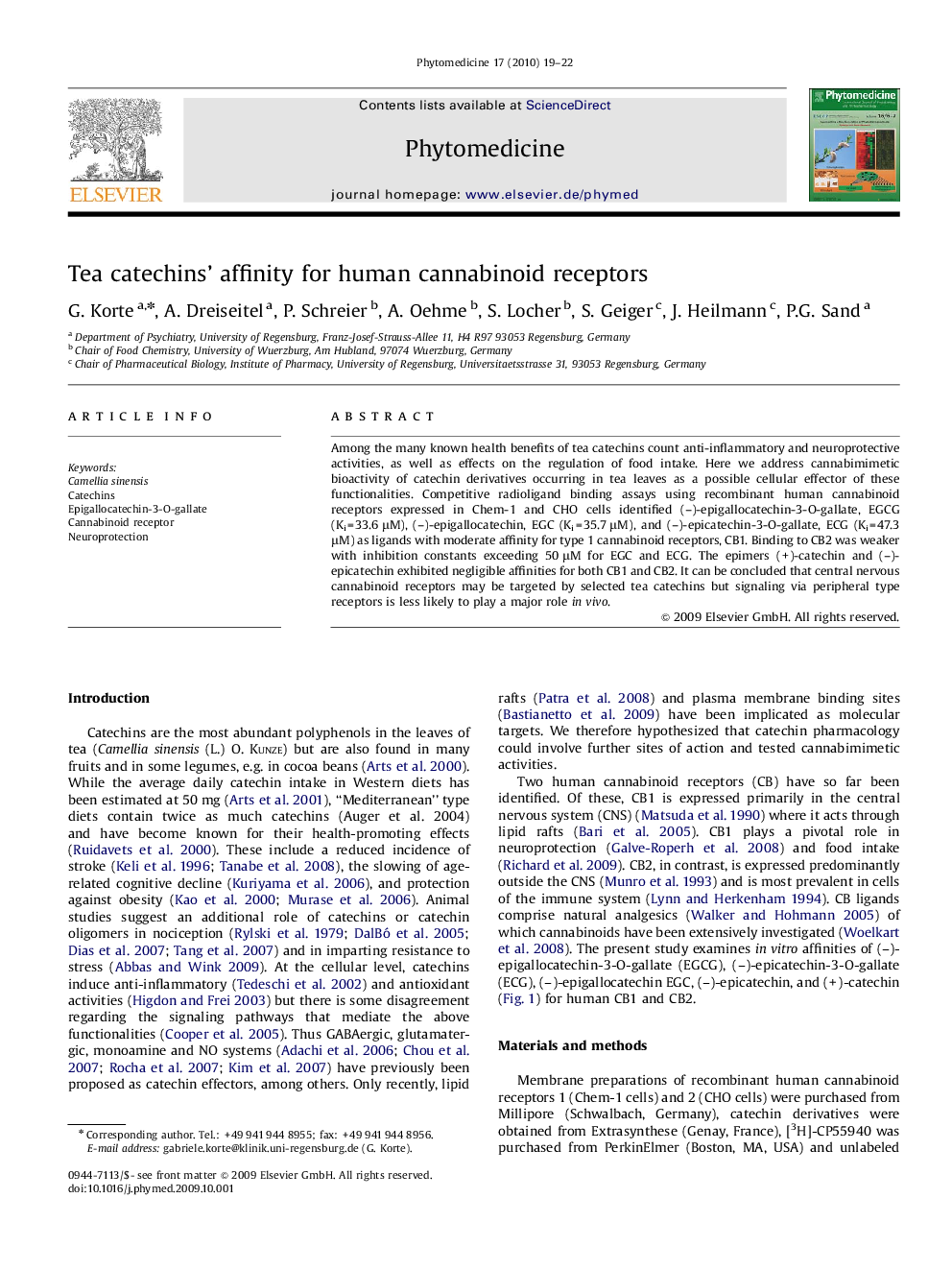| کد مقاله | کد نشریه | سال انتشار | مقاله انگلیسی | نسخه تمام متن |
|---|---|---|---|---|
| 2497439 | 1116203 | 2010 | 4 صفحه PDF | دانلود رایگان |

Among the many known health benefits of tea catechins count anti-inflammatory and neuroprotective activities, as well as effects on the regulation of food intake. Here we address cannabimimetic bioactivity of catechin derivatives occurring in tea leaves as a possible cellular effector of these functionalities. Competitive radioligand binding assays using recombinant human cannabinoid receptors expressed in Chem-1 and CHO cells identified (–)-epigallocatechin-3-O-gallate, EGCG (Ki=33.6 μM), (–)-epigallocatechin, EGC (Ki=35.7 μM), and (–)-epicatechin-3-O-gallate, ECG (Ki=47.3 μM) as ligands with moderate affinity for type 1 cannabinoid receptors, CB1. Binding to CB2 was weaker with inhibition constants exceeding 50 μM for EGC and ECG. The epimers (+)-catechin and (–)-epicatechin exhibited negligible affinities for both CB1 and CB2. It can be concluded that central nervous cannabinoid receptors may be targeted by selected tea catechins but signaling via peripheral type receptors is less likely to play a major role in vivo.
Journal: Phytomedicine - Volume 17, Issue 1, January 2010, Pages 19–22